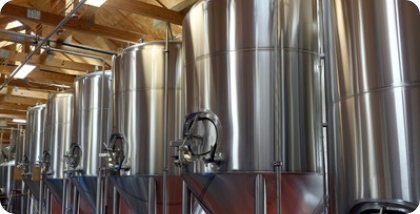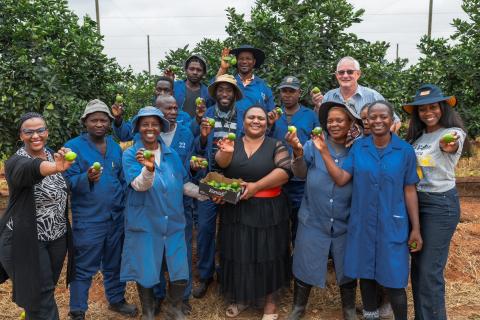
When it comes to sustainable development, SABMiller has a solid approach that encompasses a number of corporate social responsibility priorities – ten, to be exact. These priorities were launched in June 2010 as part of a global programme - ‘Ten Priorities, One Future’.
1. More Beer Using Less Water
One of the top SAB priorities is a water saving strategy based on the 5 R’s:
- Protect
- Reduce
- Reuse
- Recycle
- Redistribute
Great progress has already been made by reducing the amount of water required to produce a litre of beer by 8%.
2. Discouraging Irresponsible Drinking
SAB has made discouraging irresponsible drinking one of its top sustainable development priorities. The reason is simple. When people drink too much, they can hurt themselves, other people and the communities in which they live. No one benefits.
There is no simple solution. SAB believes, however, that there are things that can make a difference. These include making sure that information about alcohol is accurate and balanced; enforcing of laws against drinking and driving, underage drinking and disorderly conduct; and reaching out to help the people who are most at risk.
3. Reducing Energy And Carbon Footprints
Switching to renewable energy sources is only the beginning of SAB’s climate change strategy. Focus is also placed on how to reduce greenhouse gas emissions from the packaging stage, to manufacture, transport and refrigeration.
4. Reducing packaging weight, reusing bottles, encouraging recycling
SAB has developed a sustainable packaging strategy for global operations. It’s focussed on eight core elements:
- A lifetime commitment approach to sustainable packaging
- Promotion of sustainable design
- Making sure that packaging is safe and fit for use
- Finding ways to eliminate or reduce packaging
- Using more recycled content in packaging
- Reducing amount of transit packaging being used
- Recognising disposal options for all packaging used
- Contributing to water and energy savings
5. Working Towards Zero Waste Operations
Reducing the amount of waste generated is a key component of the SAB Ten Priorities. The principles of reduce, reuse and recycle are adhered to at every turn. A lot of SAB’s waste is useful for farmers and food producers and is also a potential source of energy. SAB saves money by not sending large quantities of waste to landfills and also contributes to reducing environmental impact.
6. Building Supply Chains Reflecting Company’s Values And Commitment
SAB has set up a number of initiatives in the last few years, all of which are a support to enterprise development and entrepreneurship. Strong partnerships with suppliers allow SAB to deliver quality, cost-effective products that help maintain the high standards that have always been delivered to consumers.
7. Benefiting Communities
The quality of life of local residents is of the utmost importance to SAB. In 2011, R14 million was donated to environmental initiatives, local sports development as well as welfare projects. It’s an on-going commitment with the main aim being to ensure that SAB’s role in alleviating poverty remains steadfast.
8. Contributing To The Reduction Of HIV/Aids
The fight against HIV/Aids is a global one and one that SAB plays a role in. The goal is to reduce the instances of the disease as well as the impact. This is carried out using influence in educational initiatives and awareness campaigns for employees and their families, the SAB supply chain and the local communities within which SAB operates.
9. Respecting Human Rights
SAB holds the utmost respect for all cultures, laws, traditions and basic human rights. The values of the Universal Declaration of Human Rights are respected and instilled in the complete SAB supply chain.
10. Transparency Reporting The Company’s Progress
SAB is completely transparent with regards to sustainable development reporting. Any and all information can be accessed at all times by external stakeholders.



